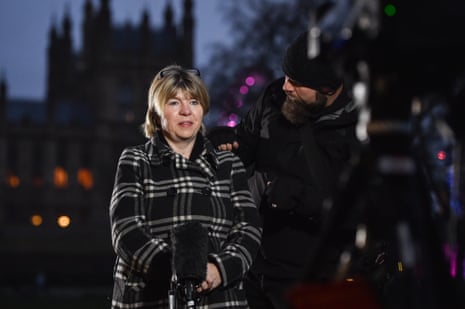Good morning. Greg Power, who was an adviser to the late Robin Cook when he was leader of the Commons and who has spent the last two decades giving advice on strengthening parliamentary governance in developing countries around the world, has just published an unusual and insightful book on behaviour and political reform (Inside the Political Mind) and it starts with this obseration that goes a long way to explain why parliament went into meltdown so dramatically last night.
The vast majority of parliamentary fights start with differences over policy. But what makes them combustible is when they turn into arguments about process. It is the belief that the rules are being abused, distorted or ignored in order to gain political advantage that creates such anger.
With that in mind, the events of last night, described here in Kiran Stacey’s overnight story, are easier to comprehend.
Today it is Sir Lindsay Hoyle, the speaker, who is under most pressure. He is due to hold talks with the parties to clear the air, but 33 MPs (22 Tories, 11 SNP) have signed a Commons early day motion expressing on confidence in him. The Telegraph has splashed on the line that he is fighting to save his job.
TELEGRAPH: Speaker on brink after walkout #TomorrowsPapersToday pic.twitter.com/1TO93rJlas
— Neil Henderson (@hendopolis) February 21, 2024
Both Hoyle’s predecessors had EDMs tabled expressing no confidence in them, and precedent suggests that EDMs on their own don’t matter. Speakers end up going when the government or opposition leadership turns against them, and this can happen if it becomes clear that they enjoy the broad support of the house as a whole.
And that is why Maria Caulfield’s interviews this morning were interesting. Caulfield is a health minister. She was not explicitly delivering a government line on Hoyle (No 10, when asked questions about the speaker’s future, normally says that’s a matter for the Commons, not the government), but she did not give him her support.
As Aubrey Allegretti from the Times reported, on a Tory WhatsApp group last night Caulfield said Hoyle had been “completely irresponsible” in doing hat he did.
Tory WhatsApp groups are still alive with rage at the Speaker’s decision tonight.
Another minister - Maria Caulfield - breaks cover to claim Lindsay Hoyle knew “all the fire from protesters would be against us” by letting Labour motion be voted on - as Tories would oppose.
She says it was “completely irresponsible” for MPs’ safety.
Tory WhatsApp groups are still alive with rage at the Speaker’s decision tonight.
— Aubrey Allegretti (@breeallegretti) February 21, 2024
Another minister - Maria Caulfield - breaks cover to claim Lindsay Hoyle knew “all the fire from protesters would be against us” by letting Labour motion be voted on - as Tories would oppose.…
This morning Caulfield told Sky News that Hoyle’s position was now “difficult” and that she would struggle to support him.
And she said his ruling was biased against the Conservatives. On the Today programme she said that Hoyle had arranged the votes to take place in such a way as to reduce the risk of Labour MPs having to make a choice that would expose them to threats, but to increase the risk of Conservative MPs having to make a choice that would expose them to threats. She explained:
My concern was that, because [Hoyle] came under undue pressure from the Labour leader, because Labour were worried about losing that vote, for whatever reason … that meant that we will be the only party who would not be supporting the SNP motion, and that all the fire would come on Conservative MPs.
I just felt that you know, he was putting party politics above the impartiality of the speaker. He took the threat to Labour MPs seriously, but took no consideration of what would happen to Conservative MPs.
Caulfield was referring to the fact that, if the votes had taken place yesterday in line with the established rules, Labour MPs would not have been able to vote on their own motion, but would have had to take a view on the SNP one. The last time this happened, many received threats for not voting with for the SNP ceasefire proposal.
As a result of the Hoyle ruling, the Tories would have had to vote down two immediate ceasefire motions – Labour’s and the SNP’s – if they wanted to vote for their own immediate humanitarian pause one. (Under the conventional rules, they would have only had to vote down the SNP one to get a vote on their own.)
We’ve got business questions coming up in the Commons later, and that should give some indication as to how much opposition there is to Hoyle. Judging by social media, Labour MPs are already running an operation to back him.
Here is the agenda for the day.
10.30am: Penny Mordaunt, the leader of the Commons, takes questions on next week’s Commons business.
11.30am: Downing Street holds a lobby briefing.
Afternoon: Rishi Sunak is on a visit in north Wales.
If you want to contact me, do try the “send us a message” feature. You’ll see it just below the byline – on the left of the screen, if you are reading on a laptop or a desktop. This is for people who want to message me directly. I find it very useful when people message to point out errors (even typos – no mistake is too small to correct). Often I find your questions very interesting, too. I can’t promise to reply to them all, but I will try to reply to as many as I can, either in the comments below the line; privately (if you leave an email address and that seems more appropriate); or in the main blog, if I think it is a topic of wide interest.
